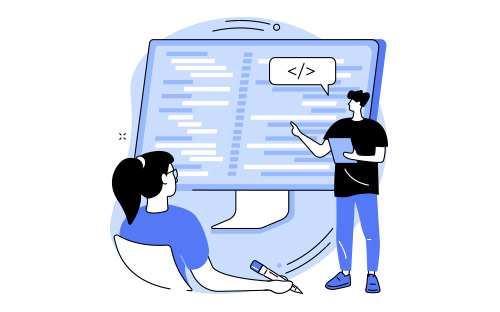2022-02-17 17:19:43 来源:中国教育在线
剑桥雅思13Test3阅读passage2真题翻译(2) 关于这个问题下面小编就来为各个考生解答下。

剑桥雅思13Test3阅读passage2
You should spend about 20 minutes on Questions 14-26, which are based on Reading Passage 2 below.
How baby talk gives infant brains a boost
“婴儿腔”对婴儿大脑发育的促进
Another study suggests that parents might want to pair their youngsters up so they can babble more with their own kind. Researchers from McGill University and Universite du Quebec a Montreal found that babies seem to like listening to each other rather than to adults - which may be why baby talk is such a universal tool among parents. They played repeating vowel sounds made by a special synthesizing device that mimicked sounds made by either an adult woman or another baby. This way, only the impact of the auditory cues was observed. The team then measured how long each type of sound held the infants’ attention. They found that the ‘infant' sounds held babies' attention nearly 40 percent longer. The baby noises also induced more reactions in the listening infants, like smiling or lip moving, which approximates sound making. The team theorizes that this attraction to other infant sounds could help launch the learning process that leads to speech. 'It may be some property of the sound that is just drawing their attention,’ says study co-author Linda Polka. ‘Or maybe they are really interested in that particular type of sound because they are starting to focus on their own ability to make sounds. We are speculating here but it might catch their attention because they recognize it as a sound they could possibly make.1
另外一项研究表明父母们可能想让他们的孩子们结伴,这样孩子们就可以跟同龄人互相说话了。麦吉尔大学和魁北克大学蒙特利尔分校的研究者们发现婴儿们似更喜欢听同龄人说话而非听成人说话,这或许可以解释为什么“婴儿腔”是一种全球父母通晓的语言。研究者们播放了用特殊合成装置发出的重复元音,以模拟由成人女性或婴儿发出的声音。这样就可以只观察声音因素带来的影响。该团队随后再测量每种声音吸引住婴儿的时间。他们发现合成的婴儿声能够吸引婴儿注意力40秒之长。婴儿声还引发了婴儿听者更多的反应,例如微笑或咧嘴,这也接近于发声运作。该团队提出理论认为,这种对其他婴儿声音的吸引力有助于引发学习行为最终导致说话。研究合作者林达·波卡说:“也许是声音的某种属性引起了婴八们的注意;也许是他们确实对那类声音更感兴趣,因为他们开始注意自己的发声能力我们在这里只是推测,但这之所以引起他们的注意也可能是因为他们意识到他们也能发出这样的声音。
In a study published in Proceedings of the National Academy of Sciences, a total of 57 babies from two slightly different age groups - seven months and eleven and a half months - were played a number of syllables from both their native language (English) and a non-native tongue (Spanish). The infants were placed in a brainactivation scanner that recorded activity in a brain region known to guide the motor movements that produce speech. The results suggest that listening to baby talk prompts infant brains to start practicing their language skills. ‘Finding activation in motor areas of the brain when infants are simply listening is significant, because it means the baby brain is engaged in trying to talk back right from the start, and suggests that seven-month-olds’ brains are already trying to figure out how to make the right movements that will produce words,’ says co-author Patricia Kuhl. Another interesting finding was that while the seven-month-olds responded to all speech sounds regardless of language, the brains of the older infants worked harder at the motor activations of non-native sounds compared to native sounds. The study may have also uncovered a process by which babies recognize differences between their native language and other tongues.
在一份发表在《美国国家科学院公报》上的研究中,人们向两个略有不同的年龄组—7个月大、11个半月大—的共57名婴儿播放几个他们母语(英语)和9语(西班牙语)的音节。婴儿们接受了脑活动扫描仪对大脑区域的监测,这一大时区域是已知负责产生言语的运动机能。结果表明听到¨嬰儿腔”能促进婴儿大脑开始练习语言技能合作者帕特卡·库尔说:“婴儿仅仅通过聆听声音就能激活大时尔运动机能区域,这一发现很重要,因为这意味着婴儿的大脑在一开始就:备好要逆过说话来回应;这还表明7个月大的婴儿的大脑已经开始努力要想出如何动作来说出词语。”另一项有意思的发现就是虽然7个月大的婴儿对两种语言的声音都有反应,但另一年龄组的婴儿们的大脑在听到外语声音时比听到母语时触发动作机能更显著。研究还发现了嬰儿是如何识别母语和外语的差异的。
由于篇幅的问题,以上只是一部分,更多内容请继续关注我们中国教育在线外语频道。


(一)由于考试政策等各方面情况的不断调整与变化,本网站所提供的考试信息仅供参考,请以权威部门公布的正式信息为准。
(二)本网站在文章内容来源出处标注为其他平台的稿件均为转载稿,免费转载出于非商业性学习目的,版权归原作者所有。如您对内容、版 权等问题存在异议请与本站联系,我们会及时进行处理解决。"